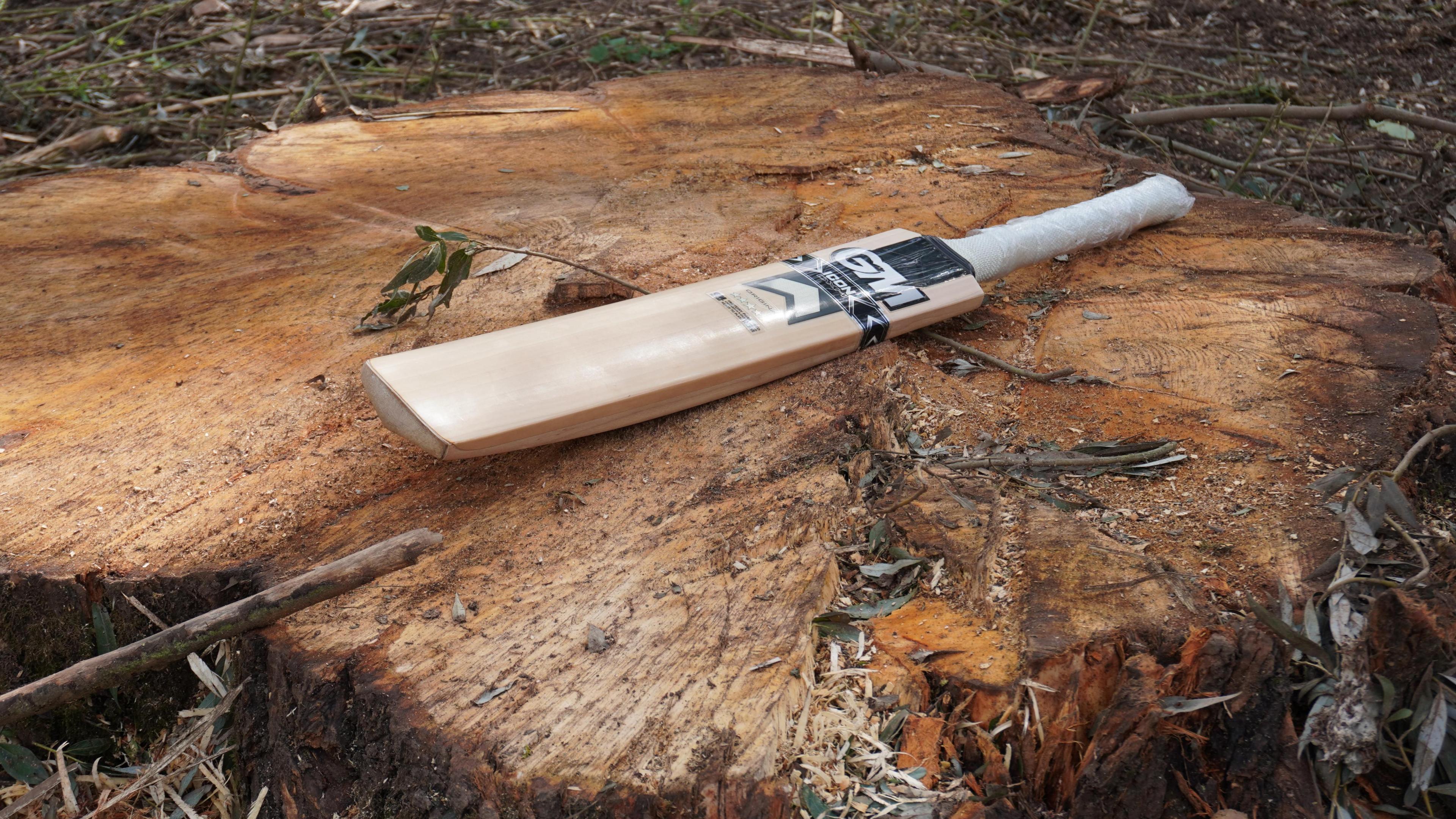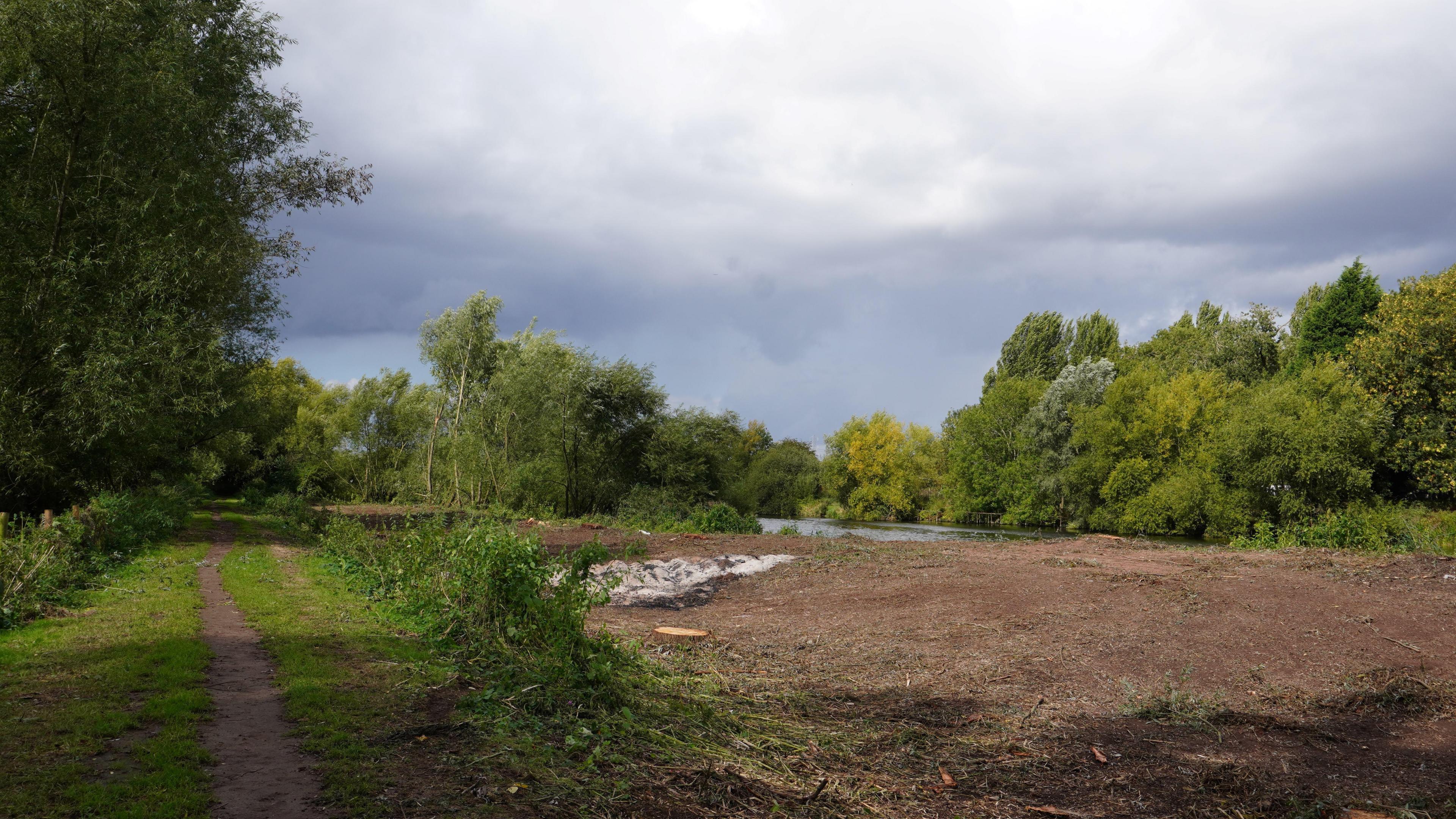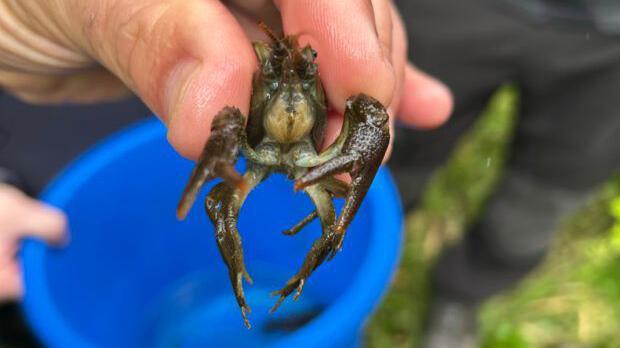Wood for cricket bats harvested at nature reserve

The willow from Farndon Willow Holt produces "strong durable timber", Nottinghamshire Wildlife Trust said
- Published
Timber from trees in a nature reserve in Nottinghamshire has been harvested to produce cricket bats.
The Farndon Willow Holt reserve, near Newark, has produced a crop of cricket bat willows which will be used by the world's oldest supplier of the product.
J.S Wright & Sons planted the recently harvested trees - a hybrid between white willow and crack willow - on the site almost 20 years ago.
The timber will first be graded and seasoned at the company's base in Essex, before being crafted into clefts, ready to be made into cricket bats.
The trees were planted by the company almost 20 years ago, after they harvested an earlier crop of trees.

The trees were harvested, and the next phase of growing the willows began at the site
Erin McDaid, head of communications at the trust, said he was delighted J.S Wright & Sons had once again harvested willows at the reserve.
He said: "The company's connection with the site stretches back to the 1960s.
"Given their expertise as the world's oldest supplier of cricket bat willow, we knew the crop and the reserve was in safe hands."
The site was previously a working willow holt owned by botanists Leaver and Barbara Howitt, who supplied willow rods for the basket-making industry in Newark, the trust said.
The trust worked with local experts and the Brackenhurst campus of Nottingham Trent University to identify and replant the couple's willow collection in 2006.
The nature reserve was acquired by Nottinghamshire Wildlife Trust in 1986, and the harvest forms part of its long-term management of the site.
Get in touch
Tell us which stories we should cover in Nottingham
Follow BBC Nottingham on Facebook, external, on X, external, or on Instagram, external. Send your story ideas to eastmidsnews@bbc.co.uk, external or via WhatsApp, external on 0808 100 2210.
Related topics
- Published19 August

- Published3 August
